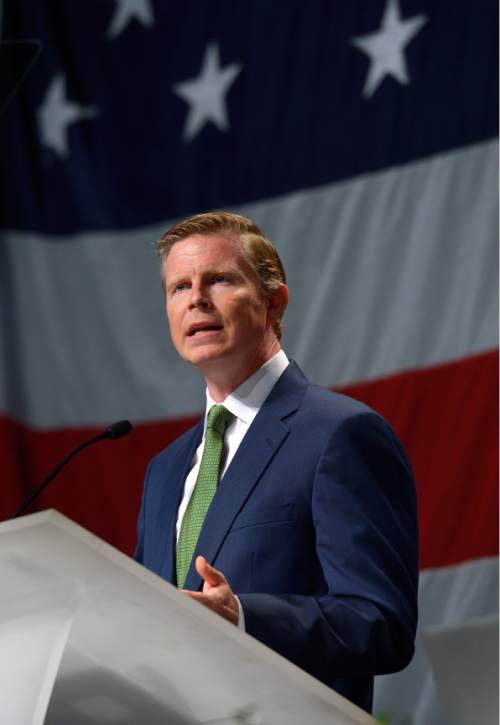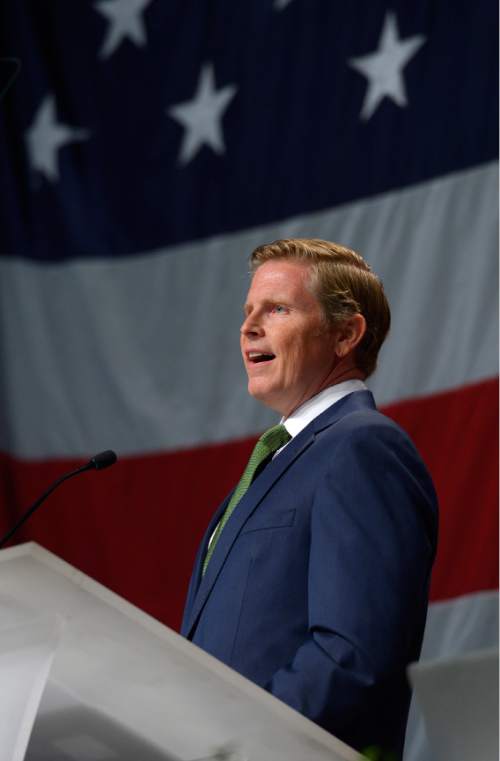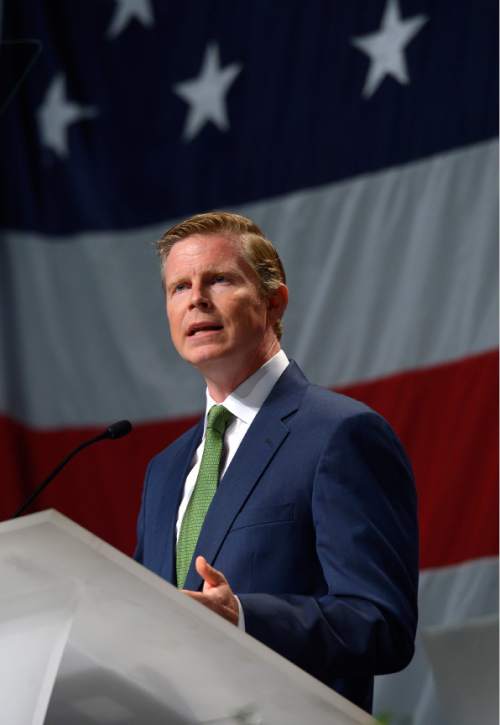This is an archived article that was published on sltrib.com in 2015, and information in the article may be outdated. It is provided only for personal research purposes and may not be reprinted.
During campaign stops on his bid to knock off Gov. Gary Herbert, former Overstock.com President and CEO Jonathan Johnson frequently argues that the governor's office should not use tax breaks to lure corporations to the state or encourage them to expand.
"The governor has been in the business of picking winners and losers through the Governor's Office of Economic Development," Johnson said in a recent interview with The Salt Lake Tribune. Of the incentive winners, he said, "about three-fourths of them are out-of-state businesses, when most jobs are still provided by homegrown Utah businesses" that can't compete for the breaks.
But Overstock twice went to the Governor's Office of Economic Development (GOED) board seeking more than $3 million in tax breaks and promising to generate hundreds of jobs to boost the state's economy.
In one instance, a 2010 GOED board meeting's minutes show Johnson personally made the case for a $1.1 million tax break for Overstock to establish a new software-engineering facility in Provo, which was approved by the board but later jettisoned by the company.
Johnson said his views on the corporate tax breaks — roughly $600 million in commitments since GOED was created — and the practices of the company he led are not inconsistent. He said he wants to reform the incentives, not get rid of them.
His criticism is part of his effort to take some of the luster off one of Herbert's top campaign talking points — a booming state economy that is growing faster than any other in the country. Johnson has pointed out that businesses, not government, generate jobs and, with his criticism of GOED, suggests things could be done better.
Herbert's campaign spokesman, Marty Carpenter, declined to comment on Johnson's critique. According to GOED, companies that have received incentives have created more than 12,736 jobs, with each dollar of the tax breaks drawing $3 in new state revenue.
The problem, Johnson argues, is that the incentives are administered inconsistently, with some companies getting sweeter offers than others, and that they are given for up to 20 years, far too long to motivate a company to act.
For example, he points to the deal Overstock was given in August 2014 — a $2.3 million incentive over 10 years, provided the company creates 333 jobs at a new corporate headquarters in Midvale. The company also received incentives from Midvale for the $100 million project. Johnson was chairman of the board at the time.
On the same day the state announced the Overstock tax break, it announced a more generous, longer-term award for Goldman Sachs, up to $13 million to create 350 jobs over 20 years.
That, Johnson said, is an example of the governor's office picking winners and losers. "We're competing for the same resources and employees that the out-of-state companies that have got large grants from the Governor's Office of Economic Development are competing for," Johnson said, "and we're handicapped because they're getting significant rebates for significant periods of time."
And Johnson contends a shorter time frame would prompt recipients to move more quickly on their projects.
A report by the Utah State Auditor's Office last year identified the same issue, noting the 20-year option is among the longer windows of time in the nation and suggested the Legislature consider narrowing the deadlines.
Johnson compares it to an approach taken by Overstock, which he said for a period of time didn't offer discounts, believing that if it had the lowest price on a product, customers would buy it. But without short-term discounts, the company found, there was no sense of urgency to purchase, so customers would walk away.
The long-term incentives, he said, don't provide a sense of urgency for companies to invest and create jobs quickly.
Rep. Sophia DiCaro, R-West Valley City, the former deputy director of GOED, said the office needs flexibility to attract businesses and jobs, and she believes the policies in place are sound.
"Not all projects and impacts of projects are equal, so the state's got to have some discretion to evaluate each project independently and [the duration of incentives] is one of the tools that they have," she said. "I think you've got to have that kind of flexibility to be competitive. And I know that the cases where there's a long-range incentive are few."
She added: "Given the landscape that we have, I think it's shown to be an effective tool."
Twitter: @RobertGehrke















